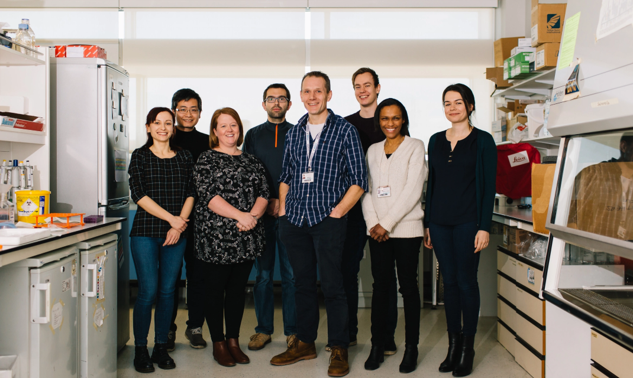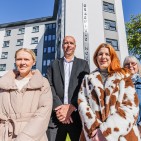Power of lifesaving research highlighted by charity CEO on World Cancer Day
Worldwide Cancer Research today (04 February 2021) announced that the University of Birmingham is home to one of the 16 new projects being funded in the UK and across the world to start new cancer cures.
The project – one of three based in the UK – has been awarded £170,685 to track immune cells to improve immunotherapy for patients.
On World Cancer Day, the charity’s CEO today highlighted the power of global research in saving and improving lives.
Reflecting on the past year, where global research accelerated a safe and effective COVID-19 vaccine on an unprecedented scale, Dr Helen Rippon underlined the importance of funding lifesaving research into new cures for cancer, and her hope that people would have a greater appreciation of the role research plays in saving lives.
Based at the University of Birmingham, Professor David Withers and his team are trying to find out more about how our immune system and immunotherapies work against cancer. They hope that a better understanding of these processes will help to improve the current immunotherapies, making them useful for more patients.
A total of 16 institutes, in 15 cities across eight countries have now received £3.2m of funding to fund research into 11 different cancer types, as well as fundamental research.
The other UK projects which will take place in Dundee and London respectively, involve:
- understanding the development of sarcoma – a rare tissue cancer – to identify new treatments
- finding out how to switch anti-cancer genes back ‘on’ to develop new treatments for Non-Hodgkin’s lymphoma
Since it was established in 1979, Worldwide Cancer Research has funded over £200million of research in over 30 countries to start new cancer cures.
Dr Helen Rippon, Chief Executive, Worldwide Cancer Research said:
“We are delighted to unveil the hugely exciting new research projects we’re funding on a day where the world comes together to highlight the importance of cancer prevention, detection and treatment.
“We care deeply about improving the lives of those with cancer, and are committed to making sure cancer research is at the top of the agenda in 2021.
“The past year has shown us the vital role research plays in improving the lives of people across the world, with the global research community coming together to deliver COVID-19 vaccines at phenomenal pace.
“It has also demonstrated what can be achieved when dedicated scientists with the brightest minds come together to solve a problem, and on World Cancer Day, I’d like to thank all of our supporters who continue to make our ground-breaking research possible. Together we will start new cancer cures.”
Professor David Withers, at the Institute of Immunology and Immunotherapy, University of Birmingham said:
“My father died of cancer in 2006. He was 59 when it was discovered. He was told there was nothing that could be done and he died less than 5 months later. This was very early in my research career, so focussing some of the research towards understanding fundamental aspects of the immune response to cancer became something I really wanted to do. I would like to think that treatment possibilities for all cancers are not too far away as we learn to better manipulate immune responses.
“Our project will increase our understanding of how immune cells get to cancers, how they change once there and why. Through better understanding the changes that occur within a cancer we hope that new ways to boost the response of immunotherapies will be clear and can be rapidly translated into helping patients.
“Being able to do research for a career is a huge privilege and is only possible thanks to the enormous support of charities such as Worldwide Cancer Research that provide so much of the funding involved in science.”
For more information about Worldwide Cancer Research or to make a find out how you can help us start new cancer cures, please visit: https://www.worldwidecancerresearch.org/support-us/donate/
















